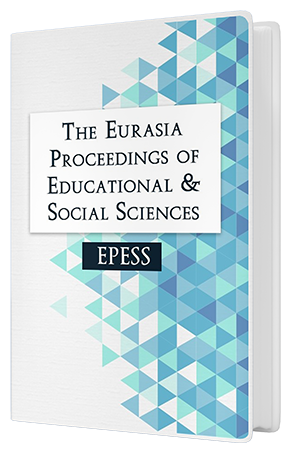DETERMINATION OF STUDENT TEACHERS’ VIEWS ABOUT REACT STRATEGY
Keywords:
REACT strategy, student teachers, context-based approachAbstract
The purpose of this study is to determine student teachers’ views about REACT strategy. In the study, data gathered quantitatively by the clinical interviews in the academic year of 2012-2013 at the spring term. The clinical interviews were carried out with 11 student teachers from two different classes in elementary education department. In both classes, REACT strategy was used as a teaching method by the same researcher in General Chemistry Course. In the clinical interviews, students were asked that “What are your favorite aspects of the teaching method?”, “What are the aspects that you do not like about the teaching method?”, “What stage of the teaching method do you like most?”, “What conveniences does the teaching method provide for your understanding of the topic?”, and “What do you suggest about the teaching method?”. The findings suggest that student teachers liked performing experiments at most, facilitating learning and making the topic concrete. Most of student teachers did not suggest anything for REACT strategy as a pitfall, a small number of student teachers complained about an increase in students responsibility, e.g. early class preparation and overcrowding classes. As a conclusion, it can be said that student teachers liked REACT strategy because it facilitates learning by providing science experiments.Downloads
Published
Issue
Section
License
Copyright (c) 2014 The Eurasia Proceedings of Educational and Social Sciences

This work is licensed under a Creative Commons Attribution-NonCommercial-ShareAlike 4.0 International License.
The articles may be used for research, teaching, and private study purposes. Any substantial or systematic reproduction, redistribution, reselling, loan, sub-licensing, systematic supply, or distribution in any form to anyone is expressly forbidden. Authors alone are responsible for the contents of their articles. The journal owns the copyright of the articles. The publisher shall not be liable for any loss, actions, claims, proceedings, demand, or costs or damages whatsoever or howsoever caused arising directly or indirectly in connection with or arising out of the use of the research material. All authors are requested to disclose any actual or potential conflict of interest including any financial, personal or other relationships with other people or organizations regarding the submitted work.




